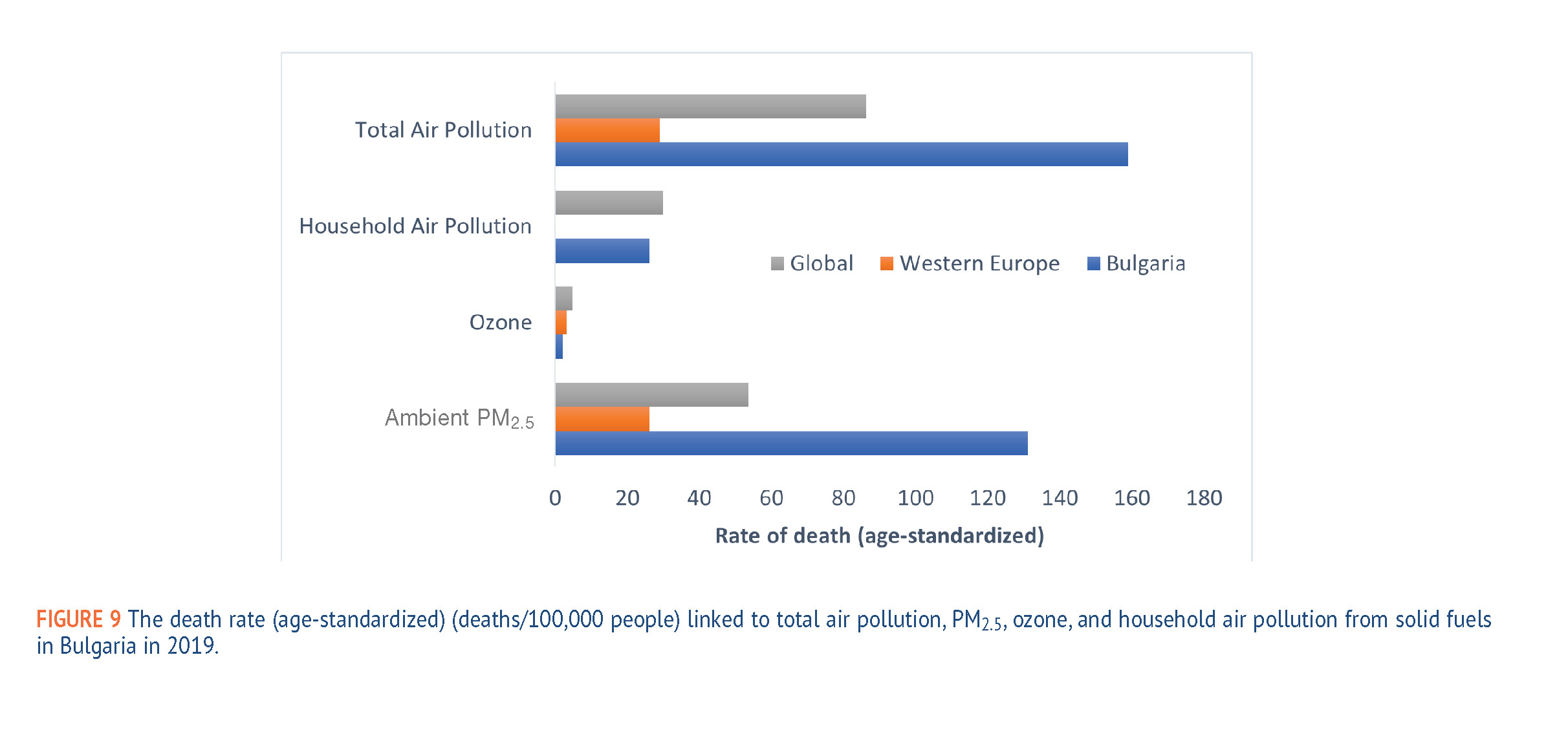
You are here
State of Global Air Special Report on air quality and health in Bulgaria
A new report from Health Effects Institute’s Global Health program, Trends in Air Quality and Health in Bulgaria highlights air quality and its health impacts for Bulgaria and is part of HEI's ongoing series of State of Global Air special reports.
Air quality remains a key concern in the Southeastern European country as the entire population lives in areas where levels of fine particulate matter (PM2.5) exceed the World Health Organization (WHO) annual guideline value of 5 μg/m3. In 2019, air pollution was the 7th leading cause of death in Bulgaria, resulting in 11,000 deaths across the country.
Data in this report comes from the Global Burden of Disease study 2019, from over 15 studies and risk assessments of air pollution and health in the country, and from a recent HEI-funded global assessment (McDuffie, et al, 2021) that examines major air pollution sources and their associated health impacts.
A full set of data for this SoGA regional report can be found here. Earlier this year, HEI also released an interactive literature database containing relevant research articles on air pollution and health as well as reports and policy briefs from across the region, including many studies from Bulgaria.


